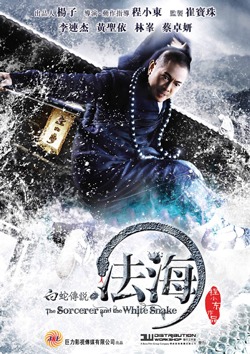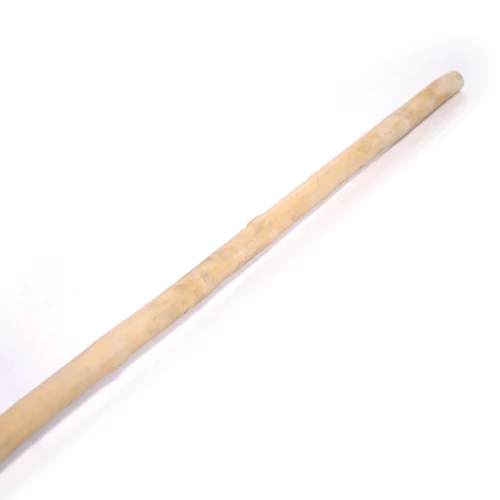By Gene Ching
 Film provides an excellent gauge for national zeitgeist, especially when government censorship is in play. While Hollywood decomposes into overblown formulaic blockbusters, Chinese cinema is caught between toeing the party line and catering to the escapist tastes of their ever-growing middle class. Lately, two major Chollywood formulas have emerged: Fant-ASIA and Party-Line History.
Film provides an excellent gauge for national zeitgeist, especially when government censorship is in play. While Hollywood decomposes into overblown formulaic blockbusters, Chinese cinema is caught between toeing the party line and catering to the escapist tastes of their ever-growing middle class. Lately, two major Chollywood formulas have emerged: Fant-ASIA and Party-Line History.
Party-Line History films focus on China's struggles to become a communist nation during the last century. Painfully propagandist, PLH flicks dwell on martyrs' sacrifices and patriotic history. The tent-pole PLH film was The Founding of a Republic (2009 建国大业), which starred almost every major Chinese celebrity, albeit most for just short cameos: Chen Kaige, Jackie Chan, Stephen Chow, Chow Yun Fat, Andy Lau, Tony Leung, Jet Li, John Woo, Donnie Yen, Zhang Ziyi and dozens more, some 170 stars all told. While not a kung fu film per se, the film depicted the beginnings of the PRC in the late '40s. Republic premiered just prior to the 60th Anniversary of the PRC's founding. It was a turning point for Chollywood, raking in $61 million from all the politically-correct theaters in PRC. As a prequel, The Founding of the Party (建党大业) was released in June 2011. This film portrayed the early days of the communist party, beginning with the 1911 revolution. It didn't have as stellar a cast, but still had many A-listers like Chow Yun Fat, Andy Lau and John Woo. The release of Harry Potter and the Deathly Hallows was delayed in China to give The Founding of the Party a better chance at the #1 box office spot.
Kung fu films echoed PLH sentiments. Notable was Donnie Yen's award-winning Bodyguards and Assassins (2009十月围城), which followed the sacrifices made to protect Sun Yat-Sen. Similarly, the "foreigner versus kung fu master challenge match" has reemerged as a none-too-subtle comment on national pride and foreign oppression. This theme goes back to Bruce Lee's Fist of Fury (1972精武门) and has been echoed in Yuan Woo Ping's True Legend (2009 苏乞儿) and Donnie Yen's Ip Man 2 (2010叶问2).
Jackie Chan's 100th film was originally announced to be the third installment of his beloved Armour of God franchise of the late '80s and early '90s. Chinese Zodiac centers on another nationalistic formula - foreigners stealing Chinese treasures. Chan rehashed the same formula in his last film, Shaolin (2011 新少林寺), as well as The Myth (2005 神话). However, given the political trend, Armour of God: Chinese Zodiac has been put on hold. Now Jackie's 100th will be 1911 (辛亥革命), scheduled for release in October 2011 to coincide with the centennial of the revolution. Boasting up to 70 celebrities, including Li Bingbing and Jackie's son, Jaycee, 1911 is Jackie's reply to The Founding of the Party.
On the flip side, Fant-Asia is back with a vengeance. Fant-Asia was at its height during the early '90s, typified by spectacular pre-CGI films of Tsui Hark and Jet Li. Hark returned to form with last year's Detective Dee and the Mystery of the Phantom Flame (狄仁杰之通天帝国), which was nominated for a Golden Lion award at the prestigious 2010 Venice Film Festival. For his next project, Hark reunites with Li for Flying Swords of Dragon Gate Inn (龙门飞甲), filmed in 3D. Li is also working with Tony Siu-Tung Ching on a remake of Hark's 1993 Fant-Asia hit Green Snake (青蛇). Tentatively titled The Sorcerer and the White Snake (白蛇傳說), or alternatively It's Love, this film is slated for release this year. Director Wilson Yip also pillaged Hark's Fant-Asia archive with A Chinese Fairy Tale (倩女幽魂), released in April 2011 (and considered a blatant poaching of Hark's Chinese Ghost Story franchise of the late '80s). Both films are actually based on Pu Songling's classic collection of Chinese twilight zone tales, Strange Tales of the Liaozhai (聊齋誌異), published in 1740.
The biggest Fant-Asia film on the horizon is also based on a classic, this one from the 1590s, the tale of the Monkey King, Journey to the West (西遊記). Donnie Yen stars in a $60-million highly anticipated IMAX 3D blockbuster, The Monkey King (大鬧天宮), slated for release July 2012. Also starring Chow Yun Fat and Cecilia Cheung, The Monkey King is hoping to capitalize on the same 3D jackpot that James Cameron's Avatar (2009) did in China. China delivered the second highest foreign box office results for Avatar, over $182 million, a box-office cash-out that really put China on the map for international film markets. Not to be outdone, Cameron is the 3D advisor for another version of Journey to the West. The project, Journey, has a $300-million budget. It is the first of a film trilogy to be directed by Zhang Jizhong. Zhang directed two of the other Four Great Classic Novels (四大名著) as television serials. These were the other two martial ones, both from the 14th century: Luo Guanzhong's Romance of the Three Kingdoms (三國演義) and Shi Nai'an's Outlaws of the Marsh (水滸傳). Noted author Neil Gaiman, whose books have been made into thoughtful fantasy films like Stardust (2007) and Coraline (2009), has signed on to script the adaptation for Zhang's Journey. With Gaiman and Cameron, Journey has serious potential to cross over to the West. This is where Fant-Asia will inevitably triumph over Party-Line History films. PLH films may preach to the PRC masses, but Fant-Asia has global appeal.
| Discuss this article online | |
| The 1911 Revolution | |
| The Sorcerer and the White Snake |
Click here for Feature Articles from this issue and others published in
2011 .
![]() Print Friendly Version of This Article
Print Friendly Version of This Article
















